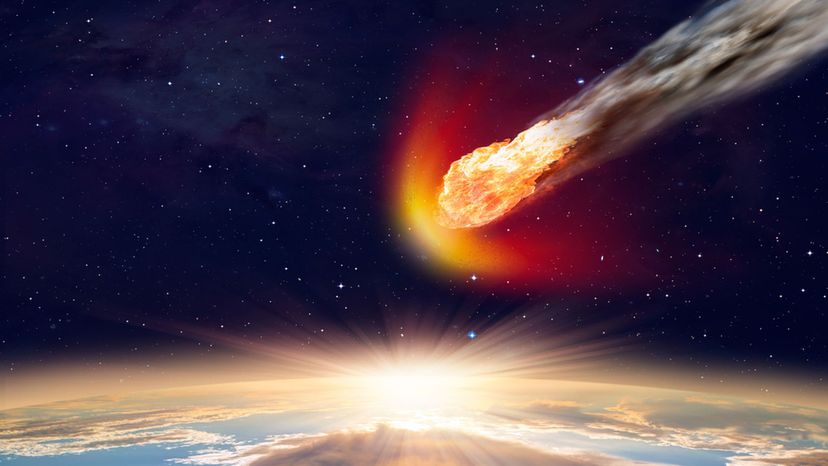
About This Quiz
Whether you stockpile for the zombie apocalypse or you've built a shelter fit for the aftermath of a nuclear bomb, let's see how well you know the basics of prepping.Preppers prepare for any disaster situation. It's a good idea to prepare for disasters most common in your area.
Knowing how to build a fire is critical to survival. Have as many options on hand as possible. Fire will not deter all animals, but the noise you make while relaxing around the campfire probably will.
In addition to stockpiling water, it is important to learn how to purify water.
Advertisement
Peanut butter is nutritious and easy to store. That's assuming, of course, that neither you or your companions are allergic to peanuts.
A machete is best used to clear a path. Remember to have the appropriate tools in the event of a disaster.
Make sure you know basic first aid. Put together a first aid kit.
Advertisement
Plan for an evacuation in advance. Make sure you practice regularly.
The Heimlich maneuver is a must-know for preppers. Basic first aid is a necessity.
In the event of a disaster, you may need to do a great deal of manual labor. Make sure that you exercise regularly to stay fit.
Advertisement
A wannabe prepper is just exploring his/her options. This individual believes that prepping is necessary but may not know where to begin.
A dedicated prepper is dedicated to the task of prepping. Supplies are in place, but plans and strategies need some fine-tuning.
The Red Cross is well known for providing education about basic first aid skills.
Advertisement
A diehard prepper is most likely to have everything in place in the event of a disaster.
Rice and beans are easy to store and nutritious. They are also filling.
A backpack full of necessities is called a bug-out bag, or BOB. It should be light enough to carry easily.
Advertisement
Preppers are ready to live life off the grid. Off the grid means they have no reliance on power grids, community water supplies or other remote infrastructure.
Fresh water can be stored in plastic jugs, toilet tanks and bathtubs. You should also know how to purify water.
Disposable plates and utensils will remove the need to wash dishes. This will save water.
Advertisement
Most preppers suggest that you have at least 3 months' worth of food stockpiled.
Potato chips are not a good source of fat. Tuna, olive oil and coconut oil have necessary nutrients.
Calories and nutrition are important considerations. Make sure that you store food that maximizes your storage space.
Advertisement
Freeze-dried foods can be expensive. Try dehydrating your own food.
A solar oven is not the best idea if you're on the go. It's just one more thing to carry. Focus on learning to build a fire instead.
One percent of the U.S. population are estimated to be serious preppers. That's as many as four million people.
Advertisement
Submerge your perishables in a stream to keep them cool.
Although you might be tempted to drag along a bucket, a cat hole - digging a hole and burying your waste - is the best way to dispose of it.
Ideally, you will have access to matches or a lighter. If you don't have those supplies, however, you should know how to start a fire the old-fashioned way - with sticks.
Advertisement
Use a wood-burning stove or a fire for heat in a pinch. Use more complicated methods when you are more stable.
Your bug out bag should have at least three days' worth of necessities. Each person should have his or her own bag.
The human body can go without water for three days, give or take, depending on general health, weather conditions and activity level.
Advertisement
Humans can go without food for about three weeks, give or take, depending on general health, weather conditions and activity level. In the event of a disaster, clean water is critical to survival, but food can wait.
Someone who has prepared properly should be ready for any type of disaster. Civil unrest is also something preppers think about.
When stockpiling water, plan on one gallon per person, per day.
Advertisement
Don't forget to stockpile for your pets, too. They will need food and water.